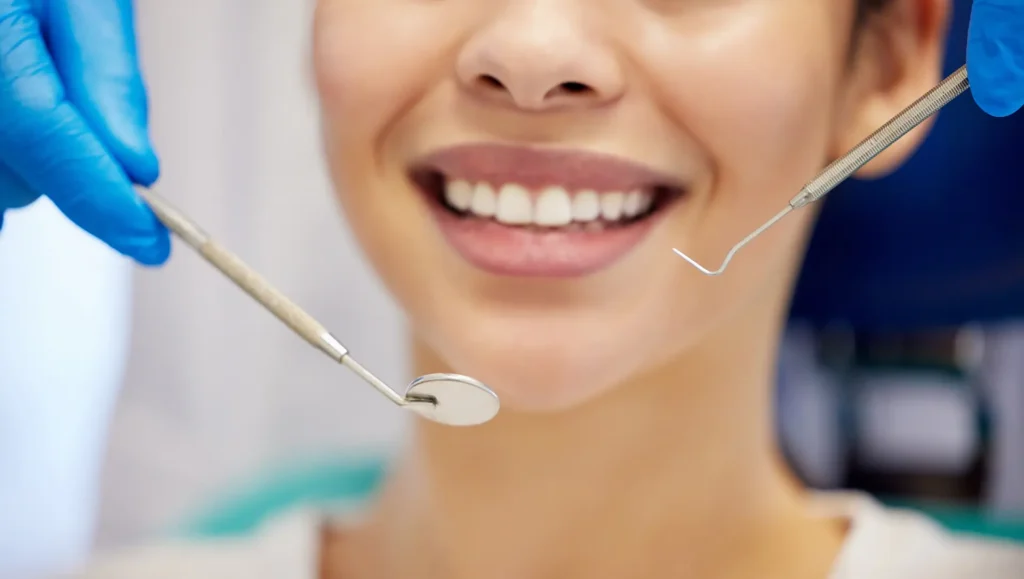If you’re considering dental implants, you know the procedure is a significant investment in your oral health and overall well-being. A successful implant procedure can provide long-lasting benefits, such as improved bite function and a natural-looking smile.
But how can you be sure that your implant procedure is progressing as it should? That’s where dental implant tests come in.
In this article, we’ll explore what you can expect during a dental implant test, how to prepare for the test, the different types of tests that may be performed, and the risks and benefits of testing. Let’s dive in!
Preparing for a dental implant test
Dental implant tests are generally painless and non-invasive, making them a safe and effective way to assess your oral health and determine if dental implants are a good option.
However, depending on the type of test, some preparation may be necessary. For example, you may need to fast before a blood test or wear comfortable clothing for imaging tests.
You should also consider any medications you may be taking, any underlying health conditions, and your overall health. If you are required to do any preparation for the test, your dental implant specialist will advise you on what steps to take. This may include fasting before a blood test or wearing comfortable clothing for imaging tests.
Types of dental implant tests

There are several different types of dental implant tests that can be done to determine whether or not a patient is a good candidate for dental implants. Some of these include:
Dental Implant Torque Test
A dental implant torque test is performed to measure the amount of force required to loosen the implant.
During this test, a torque wrench is used to apply a specific amount of force to the implant, and the required force is recorded. This test is important because if the implant is not securely anchored in the bone, it may fail over time.
Blood Test for Dental Implants
A blood test for dental implants is performed to evaluate the patient’s overall health and immune system function. This test may be necessary to determine if the patient is at risk for infection or other complications following the implant procedure.
Bone Density Test for Dental Implants
A bone density test for dental implants is performed to evaluate the health and quality of the patient’s jawbone.
This test is important because if the jawbone is not strong enough to support the implant, the implant may fail over time. During the test, a special type of X-ray is used to measure the bone density in the jaw.
Overall, these tests are important for evaluating dental implant candidacy and ensuring the success of the implant procedure.
The dental implant testing process

Dental implant tests are designed to assess a patient’s eligibility for implant surgery. Typically, these tests include clinical examinations, x-rays, scans, and medical history assessments. Patients may experience some discomfort during the tests, such as when they are x-rayed, but no serious pain should be expected.
The results of each test provide vital information to the dentist in determining if a patient is a suitable candidate for dental implants. This includes determining the patient’s jawbone’s health, the available space’s size and shape, and whether any other treatments are necessary before implantation.
Once the tests have been completed, the patient must follow up with their dentist for further evaluation. This will help the dentist to make an informed decision regarding whether the patient is an ideal candidate for dental implants.
Risks and benefits of dental implant testing
Dental implant testing may have a few risks, such as exposure to radiation during imaging tests or discomfort during tissue biopsy. While these risks are typically minimal, patients should consult with their healthcare provider to understand the potential risks before undergoing any tests.
Do the benefits outweigh the risks?
Dental implant testing can provide several benefits, such as ensuring that patients are good candidates for implants and minimizing the risk of implant failure.
Testing can help identify any risks associated with implant surgery and determine the best treatment plan for each patient.
Patients must weigh the risks and benefits of dental implant testing before undergoing any tests. The healthcare provider can provide information about any tests’ potential risks and benefits.
FAQs
How is a dental implant tested?
A dental implant is tested by using a combination of imaging, x-ray, and torque tests. Imaging tests allow the dentist to assess bone quality and health, as well as the position of the implant. X-ray and torque tests measure the implant’s stability and integrity.
How do you test dental implant stability?
Dental implant stability is tested with an x-ray and torque test. X-rays measure the implant’s depth and width, while torque tests measure the implant’s resistance to rotation and displacement.
How can a dentist tell if an implant is failing?
A dentist can tell if an implant is failing by looking for signs of inflammation, such as redness, swelling, and pain around the implant site. X-ray imaging can help a dentist spot any signs of loosening or displacement of the implant.
Can an X-ray show if the dental implant is failing?
Yes, an X-ray can show if a dental implant is failing. X-ray imaging can help a dentist spot any signs of loosening or displacement of the implant and can also be used to measure the implant’s depth and width.
How Do You Know If Your Dental Implant Procedure Was Successful? Take the Test!
There is always that chance of facing post-implantation challenges. But you can test your implant by following the steps above to see if you have a successful post-operative experience.
The good news is that the vast majority of implants go well and result in a great smile for the patient.
If you’re looking for a comprehensive dental implant test, look no further than Hanna Dental Implant Center.
Contact us today to learn more and how we can help you get the best results for your dental implant needs.



